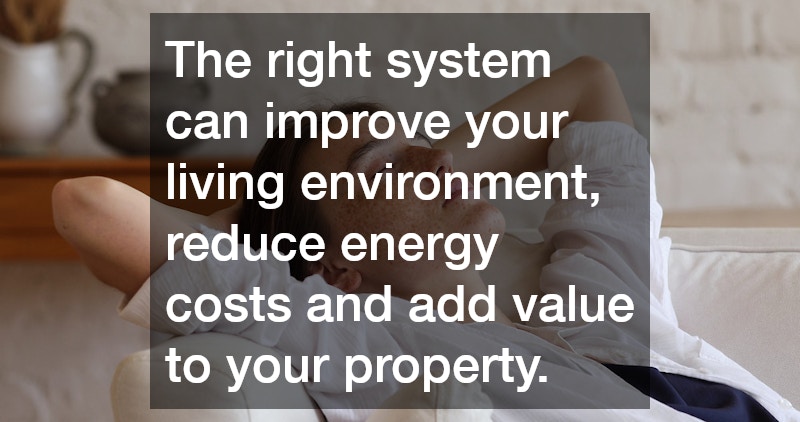
Choosing the right air conditioning system for your home is a major decision that affects your comfort, energy bills and long-term property value. With Australia’s varying climate conditions, from scorching summers to cooler winter nights, having an efficient system that suits your space and lifestyle is essential.
The ideal solution keeps your home at the perfect temperature while operating efficiently and quietly year-round.
With so many options available, it’s important to consider your specific needs, home layout and budget before committing to a system. A carefully chosen air conditioning system can significantly improve daily living and help avoid costly upgrades or repairs later on.
Consider Your Home’s Size and Layout
The size of your home plays a major role in determining what type of air conditioning system is best. A small unit won’t be powerful enough to cool a large open-plan living area, while an oversized system may waste energy and increase running costs.
A professional air conditioning technician can perform a load calculation based on the size of each room, insulation, window placement and ceiling height. This ensures the system you choose is neither underpowered nor overpowered, providing consistent comfort across your entire home.
For multi-storey homes or those with multiple rooms, zoning capabilities are also worth considering. These allow you to set different temperatures in different areas, saving energy and improving comfort where it matters most.
Focus on Energy Efficiency
Energy efficiency is one of the most important factors to consider when selecting an air conditioning system. A unit that consumes less electricity can significantly reduce your power bills, especially during peak summer months when usage is high.
In Australia, air conditioning systems carry an energy rating label that makes it easy to compare models. Look for units with high star ratings or inverter technology, which adjusts the compressor speed to maintain a consistent temperature instead of cycling on and off. This not only saves energy but also results in quieter operation and better long-term performance.
Government rebates or incentives may be available for energy-efficient systems, so it’s worth checking local programs before making a purchase.
Installation Quality Matters
Even the best air conditioning unit won’t perform properly if it’s poorly installed. Correct installation ensures the system runs efficiently, cools or heats as expected and avoids unnecessary strain on the components.
Always use a licensed air conditioning technician who is familiar with Australian standards and building codes. They will assess your property, recommend a system based on your needs and install it to ensure optimal airflow, proper drainage and safety.
A quality installer also offers ongoing maintenance and support, which is essential for keeping your system in top condition.
Consider Maintenance and Running Costs
Like any household appliance, air conditioning systems require regular maintenance to operate efficiently. This includes cleaning filters, checking refrigerant levels and inspecting ductwork or outdoor units for signs of damage or wear.
When choosing a system, consider the long-term maintenance needs and costs. Some units require more frequent servicing than others, and replacement parts may vary in price. Selecting a reliable brand with a strong local service network can help avoid long delays or high repair bills.
Understanding the running costs of your air conditioning system is also essential. Newer models often feature eco modes, timers and smart technology that let you control settings from your phone. These features can help reduce electricity usage without sacrificing comfort.
Match the System to Your Lifestyle
How you use your home will also influence the best air conditioning system for you. If you spend most of your time in one area, a split system might be enough. If your family is spread across multiple rooms, a ducted system with zoning may be a more practical option.
Consider how often you’ll use cooling or heating, the time of day you’re typically at home, and your preferred indoor temperature range. These factors will help guide your decision and ensure the system you choose suits your day-to-day needs.
Investing in the right air conditioning system requires careful planning and a good understanding of your home and lifestyle. By assessing your space, choosing an energy-efficient model and working with a licensed installer, you can enjoy reliable, cost-effective comfort for years to come.
Whether you’re building a new home or upgrading an old unit, the right system can improve your living environment, reduce energy costs and add value to your property. Taking the time to make an informed decision will help you stay cool in summer and warm in winter, no matter where you live in Australia.




